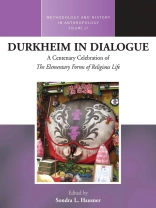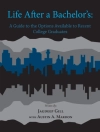One hundred years after the publication of the great sociological treatise, The Elementary Forms of Religious Life, this new volume shows how aptly Durkheim¹s theories still resonate with the study of contemporary and historical religious societies. The volume applies the Durkheimian model to multiple cases, probing its resilience, wondering where it might be tweaked, and asking which aspects have best stood the test of time. A dialogue between theory and ethnography, this book shows how Durkheimian sociology has become a mainstay of social thought and theory, pointing to multiple ways in which Durkheim¹s work on religion remains relevant to our thinking about culture.
Jadual kandungan
Acknowledgments
List of Contributors
Introduction: Durkheim in Disciplinary Dialogue
Sondra L. Hausner
Chapter 1. The Notion of Soul and Science Positive: A Retrieval of Durkheim’s Method
Karen E. Fields
PART I: SOCIAL FORMS
Chapter 2. Return to Durkheim: Civil Religion and the Moral Reconstruction of China
Zhe Ji
Chapter 3. Elementary Forms of War: Performative Aspects of Youth Militia in Sierra Leone
Paul Richards
Chapter 4. Elementary Forms vs. Psychology in Contemporary Cinema
Louise Child
PART II: COLLECTIVE MINDS
Chapter 5. Durkheim’s Sacred-Profane Opposition: What Should We Make of It?
N.J. Allen
Chapter 6. Durkheim and the Primitive Mind: An Archaeological Retrospective
Clive Gamble
Chapter 7. Durkheim, Anthropology, and the Question of the Categories in Les Formes Élémentaires de la vie Religieuse
Susan Stedman Jones
PART III: EFFERVESCENCE
Chapter 8. Is Individual to Collective as Freud is to Durkheim?
Sondra L. Hausner
Chapter 9. Collective Representations, Discourses of Power, and Personal Agency: Three Incommensurate Histories of a Collaborator’s Rebellion in the Colonial Sudan
Gerd Baumann
Chapter 10. Actants Amassing (AA): Beyond Collective Effervescence and the Social
Adam Yuet Chau
FIN
Chapter 11. The Creation and Problematic Achievement of Les Formes Élémentaires
W. Watts Miller
Mengenai Pengarang
Sondra L. Hausner is Oxford¹s first University Lecturer in the Study of Religion. An anthropologist by training, she teaches social and cultural theories of religion in the Faculty of Theology and Religion at the University of Oxford. Her ethnographic work focuses on Himalayan and South Asian religions and the social dynamics of ritual. She won the Joseph W. Elder Prize in the Indian Social Sciences from the American Institute of Indian Studies for her Durkheim-inspired monograph, Wandering with Sadhus: Ascetics in the Hindu Himalayas (Indiana University Press, 2007).












